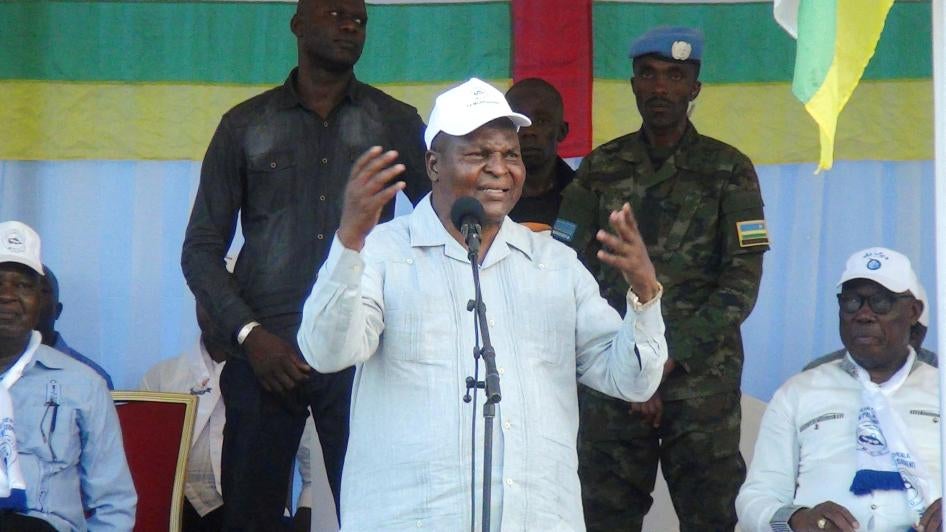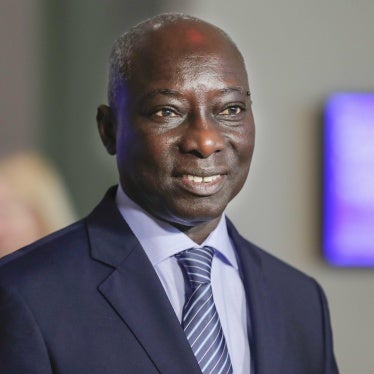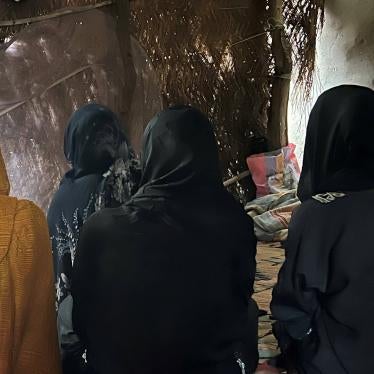At the end of July, citizens in the Central African Republic will vote on a new constitution that would allow President Faustin-Archange Touadéra to run for president again – a third term not permitted under the current constitution. The proposed changes would, among other things, reset the clock on the two terms Touadéra has already served, enabling him to run for a seven-year term in 2025.
The proposed constitution is also silent on presidential term limits altogether, a stark departure from the 2016 constitution, which limits presidential terms to five years, renewable once. This means that if a majority of Central Africans support the new constitution, and if Touadéra decides to run again, he could extend his rule indefinitely.
Painful Memories
It appears likely that the referendum will be adopted. During the past year the president and members of his ruling party, the United Hearts Party (Mouvement des Cœurs unis, MCU), have claimed they are following the “will of the people.” But they have little to support this assertion beyond marches organized by MCU-affiliated associations in which at least some young men were paid to participate. There have been no real nationwide consultations with broad participation.
On May 30, Touadéra announced that the referendum would be held on July 30. However, the draft constitution, which outlined the proposed changes, was only made public on July 10. This is insufficient time for people to learn about the extent of the constitutional changes, much less comprehend and discuss their impact. Beyond enabling a president to run for indefinite terms, the proposed constitution also creates the post of vice-president, who would not be elected but would be appointed by the president, raising further issues.
More fundamentally, the proposed constitution seeks to define what constitutes a Central African citizen, specifically outlining that a true citizen (and thus someone qualified to run for president) must be born of two Central African parents. It stirs memories of anti-balaka militias that targeted Muslims for their perceived association with Seleka rebels. Many people were killed because they were perceived to be foreigners. Critical issues as to who is Central African and who is a foreigner, which could lead to new repression and violence, need to be addressed by considered public discussion, not a hasty referendum.
A Constitutional Court under Orders ?
In a stark departure from the current constitution, the draft constitution also seeks to change the current Constitutional Court – the highest court in the country for electoral disputes and other constitutional issues – to a Constitutional Council whose 11 members will be selected differently from current practice. The existing court has nine members, one of them selected by the president and another by the president of the national assembly. The rest were chosen by a combination of judges, law professors and lawyers. Under the proposed constitution, president and the national assembly president will be able to each select three members.
The current assembly president, Simplice Sarandji, is a longtime associate of Touadéra and was his campaign manager in 2016 before being named prime minister. This means the president and the national assembly president could fill a majority of the council with their loyalists, undermining the independence of the judiciary.
The current Constitutional Court continues to suffer its own legitimacy crisis after Touadéra removed the court’s president last October following the body’s ruling that a technical committee created by the president and his party – to propose constitutional changes – was unconstitutional. The former court president, Danièle Darlan has said that Russian Embassy officials visited her while she was still the court president and asked her for advice on how to change the constitution to enable Touadéra to stay in power. She ultimately refused to go along with the plan and was removed.
Authoritarian Regime
Since the Constitutional Court’s recently appointed chief judge declared that the president’s plan to initiate a constitutional referendum was legal, the government has cracked down on civil society groups, the media, and opposition political parties that are critical of the referendum. Touadéra himself has led this attack on opponents, saying opposition coalition leaders are close with rebel groups and part of a criminal organization.
It has been just over 10 years since Seleka rebels took power in the Central African Republic after unleashing a wave of violence. Yet out of that violence emerged real optimism that the country could turn a page. The 2015 Bangui Forum marked the first real nation-wide consultations that stressed two key tenets: ending impunity and establishing political plurality.
In 2016, Touadéra himself won an election that was broadly considered to be free and fair, a remarkable feat in a country that usually sees power change hands at the point of a gun. And despite setbacks, there were gains made in ensuring accountability for perpetrators of serious crimes. Now, a decade on, as political tensions are rising, the Central African Republic is veering again toward authoritarian rule.










